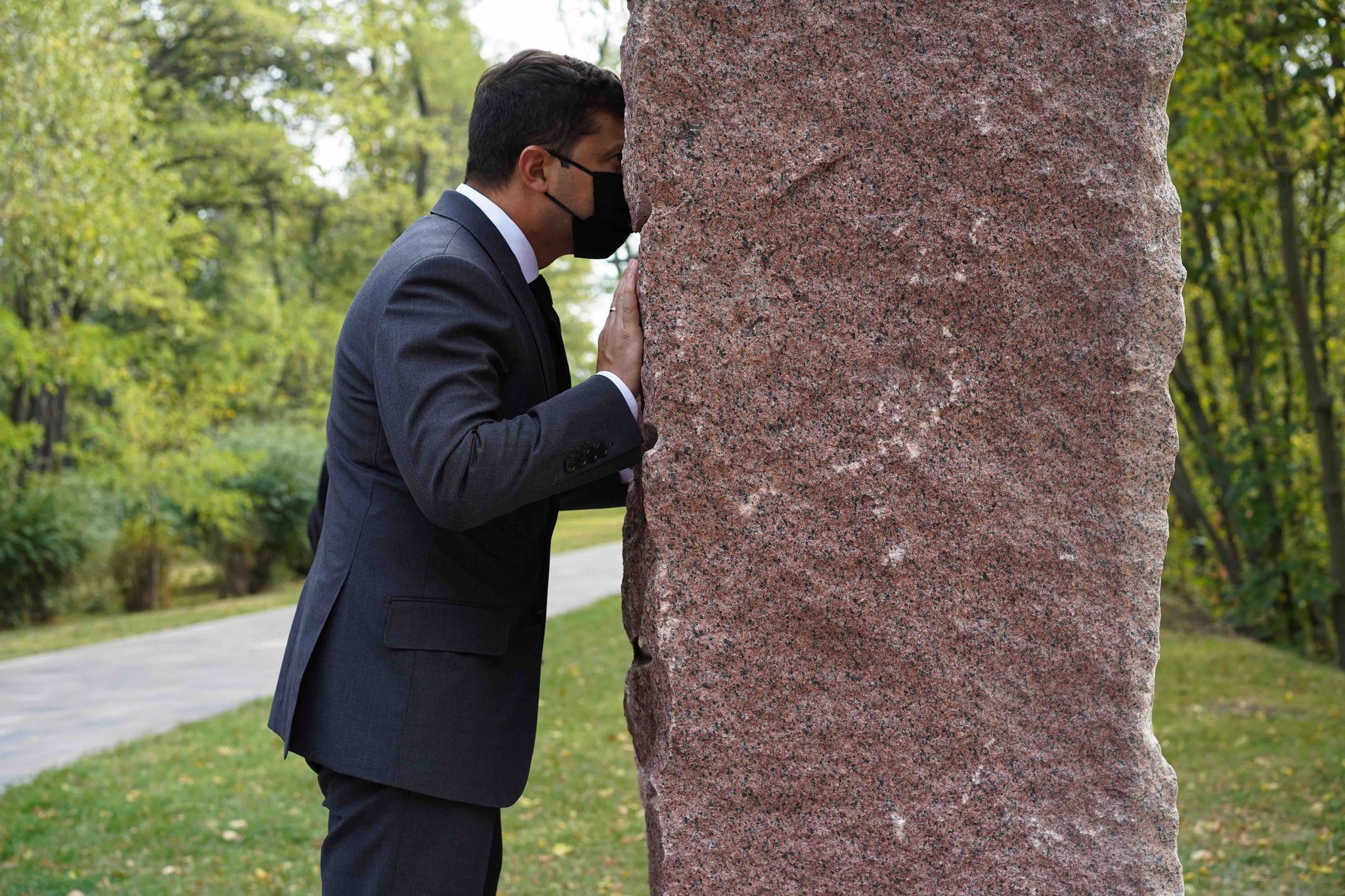click to dowload our latest edition
CLICK HERE TO SUBSCRIBE TO OUR NEWSLETTER


Published
2 years agoon
JTA – Ukrainian President Volodymyr Zelenskyy’s direct and emotional appeal to the world’s Jews on Wednesday, 2 March 2022, marked something of a departure for him.
Before and during Russia’s war on his country, Zelenskyy had spoken plainly to civilians on both sides of the conflict, but he hadn’t directly addressed those outside the country. And for his entire career he hasn’t been outspoken about his Jewish identity.
So when he and his aides repeatedly drew attention to what they said was happening to sites of Jewish significance this week, some saw a strategic decision at a perilous time for Ukraine.
“He’s using the Jewish angle – and it’s absolutely kosher,” Roman Bronfman, a Ukraine-born former Israeli legislator and the author of a book on the immigration of Russian-speaking Jews to Israel, told the Jewish Telegraphic Agency.
Zelenskyy has never hidden his Jewish identity, but he has never called attention to it either. At a ceremony last year in Babyn Yar, the site near Kyiv of a massacre of Jews during the Holocaust, Zelenskyy didn’t mention the fact that some of his relatives were murdered there, delivering a speech that could have come from any of his non-Jewish predecessors.
During his presidential campaign, Zelenskyy, a comedian turned politician, dismissed the subject of his Jewish identity with typical self-deprecating humour.
In a 2019 interview with Bernard-Henri Levy, a French-Jewish philosopher, Zelenskyy declined to explore his Jewish identity at any length, responding to a question about it by saying: “The fact that I am Jewish barely makes 20 in my long list of faults.”
And yet his chief of staff, Andriy Yermak, wrote an op-ed piece for the New York Times last Wednesday. His second sentence emphasised that Ukraine is “a country that has a Jewish president”. That op-ed piece was published shortly after Zelenskyy’s videotaped appeal, which his office translated into English and Hebrew and distributed via multiple social-media channels.
“On the first day of the war, Uman was brutally bombed where hundreds of thousands of Jews come every year to pray,” he said in the appeal, referring to the Hasidic pilgrimage site in central Ukraine. “Then Babyn Yar, where hundreds of thousands of Jews were executed.
“And now,” he said, “addressing all the Jews of the world: don’t you see why this is happening? That’s why it’s important that millions of Jews around the world don’t remain silent right now. Nazism is born in silence.”
Zelenskyy’s comments weren’t totally precise. Ukraine civilian sites are increasingly being targeted. But the bomb that fell in Uman, a city of 80 000 with about 200 year-round Jewish residents, landed miles from the grave of Rabbi Nachman of Breslov, which draws tens of thousands of Jewish pilgrims each year.
And, in spite of reports, the rocket that damaged the Kyiv TV tower didn’t in fact harm the Babyn Yar memorial, located in an adjacent area, according to a veteran Israeli journalist, Ron Ben Yishai, who toured the site last Wednesday and saw no signs of damage.
In both cases, Zelenskyy cited the numbers of Jews involved that are much higher than accepted estimates.
In the fog of war, errors are easy to make. Misinformation can be a powerful tool for leaders seeking to shape popular opinion — something that Russian President Vladimir Putin leverages regularly when trying to appeal to Jewish sentiment. Yermak’s New York Times piece was a rebuttal of the Russian president’s baseless claim that he is waging a “denazification” campaign in Ukraine.
Anna Borshchevskaya, a senior fellow at the Washington Institute for Near East Policy, told JTA that emphasising Jewish issues and ideas serves Zelenskyy well, given the Kremlin’s narrative.
“When you put forth such an egregious and baseless accusation, unfortunately because of Russian propaganda, there are people who believe it, you need to counter that,” Borshchevskaya said.
Bronfman said focusing on the details of Zelenskyy’s comments may distract from more important issues.
Babyn Yar wasn’t directly hit, he said. “But isn’t it bad enough that it’s in danger of being hit because of Russian bombs? Zelenskyy and his people are using this quite rightly to spur world Jewry to speak out.”
Zelenskyy’s first comments on Babyn Yar, posted late last Tuesday on social media, were quickly followed by a stream of condemnations by Jewish groups and organisations that accepted as fact the suggestion that the Russian bombing resulted in damage to the mass graves or the museum on the site.
Many of those groups have already directed their considerable fundraising and logistical expertise towards supporting Ukrainian Jews, who number anywhere between 43 000 and more than 300 000, according to various estimates.
But it’s clear that Zelenskyy feels a crucial aspect of Jewish support, that of Israel, is lacking. After his second call with Israeli Prime Minister Naftali Bennett last Wednesday, Zelenskyy noted on social media that the pair had spoken, but unlike after his calls with other world leaders, he didn’t thank Bennett for his support or even mention the content of their conversation.
Last Thursday, Zelenskyy went further, telling reporters at a bunker press conference, “I don’t feel the Israeli prime minister has wrapped himself in the Ukrainian flag” — the show of support that many individual Israelis and others have made.
It’s weapons, Zelenskyy has emphasised since the war’s beginning, that his country needs to battle the Russian invaders.
Zelenskyy has declined to leave Ukraine even as Putin openly declared that he is working to oust him from power. His situation, and his country’s, means that rhetoric used to galvanise needed aid are fair game, Bronfman said.
“Ukraine is in a desperate state. Zelenskyy is in a worrisome state,” Bronfman said. “When he appeals to the Jewish world for help, that’s only natural. And the Jewish world should listen.”
Ron Kampeas contributed to this article.
Published with permission from jta.org
